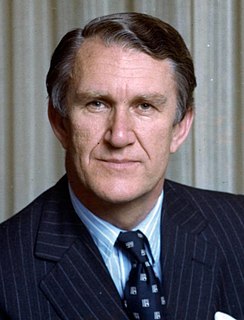A Quote by David Souter
The concept of the "information society" is both vague and all-embracing. Different participants meant different things by it. In practice, though, World Summit on the Information Society only dealt with a small number of issues: ICTs and human rights (to some extent), ICTs and development (to some extent), infrastructure finance and Internet governance. Very large aspects of what might have been included in the "information society" were not really discussed.
Quote Topics
Aspects
Been
Both
Concept
Dealt
Development
Different
Different Thing
Different Things
Discussed
Embracing
Extent
Finance
Governance
Human
Human Rights
Included
Information
Information Society
Infrastructure
Internet
Issues
Large
Meant
Might
Might Have Been
Number
Only
Participants
Practice
Really
Rights
Small
Society
Some
Summit
Things
Though
Vague
Very
Were
World
Related Quotes
Kofi Annan described World Summit on the Information Society as the first summit to deal primarily with an opportunity. The range of issues and potential opportunities that might be included in the Information Society is enormous. Compromise texts are very poor at addressing these in any meaningful way, and many governments see little point in trying.
It does seem to me, though, that the countries that gained most from World Summit on the Information Society are those that saw it as an opportunity to engage in more diverse discussion about the issues internally and to seek to raise the quality of debate (both in terms of information and understanding).
A global society is coming into being, a global society that is made out of information that was not intended to be ours, but is ours, by the mistaken invention of computers and the printing press, information is power, and information has spilled by the clumsy hands of the dominator culture so that the information is everywhere, never before has the situation been so fluid, we might be able to finally have a crack at this
Only a very small number of the e-mails containing classified information bore markings indicating the presence of classified information. But even if information is not marked 'classified' in an e-mail, participants who know or should know that the subject matter is classified are still obligated to protect it.
Well, there's a question as to what sort of information is important in the world, what sort of information can achieve reform. And there's a lot of information. So information that organizations are spending economic effort into concealing, that's a really good signal that when the information gets out, there's a hope of it doing some good...
Well, there's a question as to what sort of information is important in the world, what sort of information can achieve reform. And there's a lot of information. So information that organizations are spending economic effort into concealing, that's a really good signal that when the information gets out, there's a hope of it doing some good.
To an extent that undermines classical standards of science, some purported scientific results concerning 'HIV' and 'AIDS' have been handled by press releases, by disinformation, by low-quality studies, and by some suppression of information, manipulating the media and people at large. When the official scientific press does not report correctly, or obstructs views dissenting from those of the scientific establishment, it loses credibility and leaves no alternative but to find information elsewhere.
If a man speculates on what 'society' should do for the poor, he accepts thereby the collectivist premise that men's lives belong to society and that he, as a member of society, has the right to dispose of them...that psychological confession reveals the enormity of the extent to which altruism erodes men's capacity to grasp the concept of rights or the value of an individual life.
I think there's confusion around what the point of social networks is. A lot of different companies characterized as social networks have different goals - some serve the function of business networking, some are media portals. What we're trying to do is just make it really efficient for people to communicate, get information and share information.





























